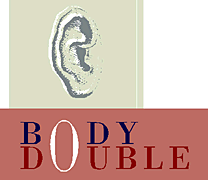 As excited as Ratner and
his fellow researchers are about what will happen in the laboratory, they know
that UWEB's greatest impact will be felt in the lives of patients who depend on
medical implants.
As excited as Ratner and
his fellow researchers are about what will happen in the laboratory, they know
that UWEB's greatest impact will be felt in the lives of patients who depend on
medical implants. 
Stayton's background is in biochemistry, but he recognizes that new techniques in materials science and engineering hold the key to developing biomaterials that mimic body tissue. One promising new technique uses scanning probe microscopy or atomic force microscopy to analyze and manipulate materials at the molecular level. This allows engineers to control the shape, pattern and surface chemistry of individual molecules so they perform a desired function, Stayton says.
Another approach is to make molecules that automatically self-assemble into more complex structures. A common example of this is soap bubbles, which are made of lipids and hydrocarbons that, when put in water, naturally congregate and form simple, spherical membranes.
"In biology, we see that all of the molecules in the body know how to organize themselves into complex structures like tissue and organs," Stayton says. "If we can build that self-assembly into our biomaterials molecules, they'll grow themselves. We won't have to worry about building a material molecule by molecule."
 As excited as Ratner and
his fellow researchers are about what will happen in the laboratory, they know
that UWEB's greatest impact will be felt in the lives of patients who depend on
medical implants.
As excited as Ratner and
his fellow researchers are about what will happen in the laboratory, they know
that UWEB's greatest impact will be felt in the lives of patients who depend on
medical implants.
Shortly after receiving her cochlear implant, Talbot-Lawson was walking through the UW Medical Center parking lot toward her car and heard an odd crickling noise. She looked around but couldn't identify the source of the sound. Then she glanced down and noticed a small, dry leaf being pushed across the pavement by the wind.
"I never knew that leaves made a sound like that; I was amazed," Talbot-Lawson says. "I don't even want to think about losing my implant. The silence is too loud."*
Greg Orwig is an engineering writer in the UW Office of News and Information. A former newspaper reporter in Texas, Orwig is a 1991 graduate of Whitworth College in Spokane.
Denice Denton: A New Kind of Dean
Return to the Beginning of "Body Double"
Send a letter to the editor at columns@u.washington.edu.